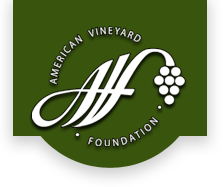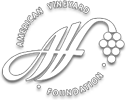AVF Funded Research Leads to Development of Hydrogen Sulfide Reducing Yeast
Napa, CA, January 19, 2009 – Reducing hydrogen sulfides during the winemaking process just got easier, thanks in large part to American Vineyard Foundation (AVF) funded research that has led to the development of a proprietary hydrogen sulfide (H2S) reducing yeast technology that prevents the formation of H2S during fermentation.
This technology was developed by Dr. Linda Bisson, professor at UC Davis’ Viticulture and Enology Department and recently licensed to Functional Technologies Corp. for commercialization.
Hydrogen sulfide is one of the most common occurring sensory defects, and a widespread problem, in wine production. The nose is very sensitive to H2S, consequently small quantities of this noxious gas can easily be detected. If not removed, it can react with other wine materials to form off-odors and off-flavors which can be difficult and costly to remove. Although the industry has utilized different methods to attempt to remediate this sensory defect, it has typically resulted in suppliers and producers making tradeoffs which may have other ramifications and repercussions. Global wine producers continue to recognize this problem and have to monitor and remediate their wine to combat problems with H2S.
“What we have developed at UC Davis is a yeast technology that consistently minimizes hydrogen sulfide production and has the flexibility to be applied across common yeast strains using classic natural breeding (non –GMO) techniques,” said Dr. Linda Bisson, professor at UC Davis’ Viticulture and Enology Department. “This technology is unique in that it is a ‘preventive’ solution that can be used proactively by commercial wineries to minimize hydrogen sulfide occurrence during fermentation, as opposed to current treatment options which are all reactionary. Hydrogen sulfide is a global problem within the fermented beverage industry, so from a commercial and a product quality standpoint, yeast technology that prevents this sensory defect should be highly desirable.”
Established in 1978 to raise funds for research in viticulture and enology, the AVF is a wine-industry sponsored non-profit organization funded by growers and vintners. Since its founding, the AVF has funded nearly $20 million in wine and grape-related research. For a complete listing of the funded research projects or more information regarding the AVF, check out their Web site at www.avf.org or contact them by e-mail at scott@avf.org.

